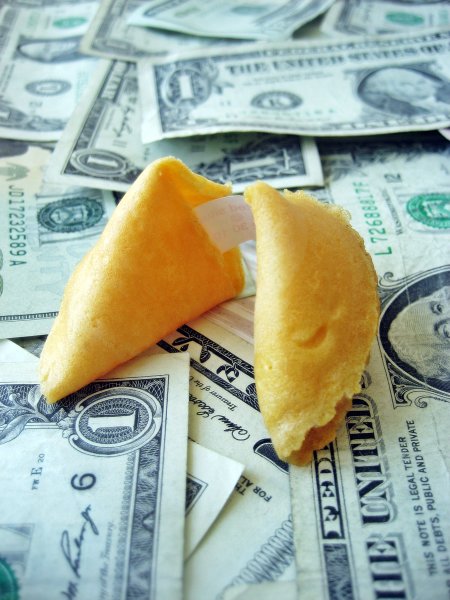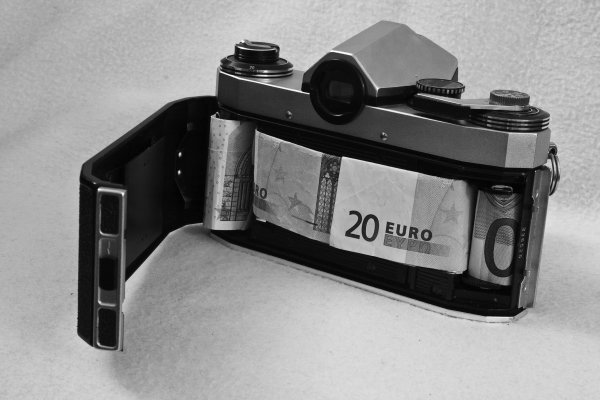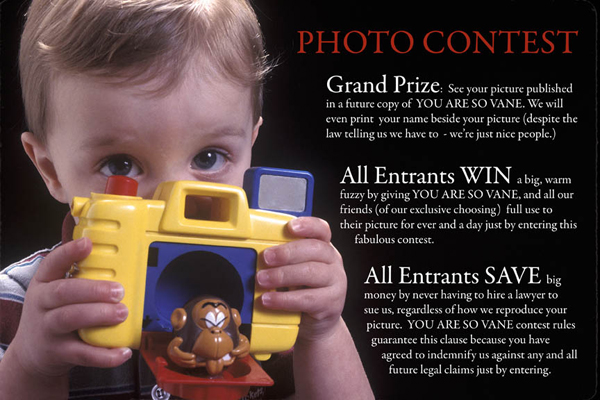
Flickr/Crystian Cruz
Barely a day goes by when I don’t see a tweet or Facebook post about yet another photo contest I must enter. “Big prizes! Fame! Exposure! Magazine Cover!” they yell out at me and I’m often tempted for various reasons.
On the surface, most contests seem like a good idea given the potential upside. However, there are many aspects to any contest which photographers should consider. Those considerations will depend upon where you are along the photography spectrum, from beginner to advanced professional.
When I look at a photo contest more closely, there are many questions I regularly ask to see if the contest is a good fit for my desires and time (and pocketbook). I’m going to list out some basic questions you want to ask yourself before entering contests in hopes that it helps you decide the next time you see a listing. There are no right or wrong answers as we all have different needs and desires for our photography. I want to help you make a conscience choice, not a reflexive one.
After the questions I will present a few current contests I feel are worth entering and why.
What is in it for me?
If you are thinking of entering a contest then you want to get something back out of it. It’s important to know what you want before you submit, otherwise you will never find what you are looking for.

By Images Money
I break down the three main reasons for entering contests into the the 3Fs:
- Fame – Are you doing it just for the exposure and fame? Do you want to be known as “X Magazine’s Fashion Photographer of the Day/Month/Year”? If so, will this contest help you with that goal? Will it add to your resume/CV?
- Fortune – Are you looking for the big bucks and could care less about the fame? Does the contest offer decent prizes to help you meet that goal? What about second and third place, are those good prizes too?
- Feedback – Some contests offer a chance to receive a critique from one of the judges (sometimes at an additional cost). This is helpful especially if you don’t win a prize. Improvement is likely why you are reading dPS in the first place!
Personally, I go for fame once in a while but mostly go for fortune. After all, I met my wife in Costa Rica after winning a Facebook contest to a surf camp there, so I am a little biased. That being said, there is no right answer for everyone, pick the criteria that works for you.
Who picks the winners?
For me, this is the next big issue. Is the winner picked by a single judge, a jury, or is it an open popularity contest voted on by likes and shares?
I prefer juried and judged contests, especially when I can research those doing the picking. I pick these contests because the judges are typically photographers, or someone with advanced art education and experience. I feel the playing field is more level with these contests.
On the other hand, pictures of kittens, sunsets, rainbows, and oversaturated mountains do very well with the voting internet as a whole. I shy away from popularity contests because A) I’m not ultra-popular and B) they can be rigged and often bury great work in favor of pretty work. The main reason a website will run a photo contest is to make themselves more popular and visited and that’s why these types of contests exist.

By Chris Potter
What about my rights?
As a professional with a vested interest in protecting the use of my images, I read the full rules of every contest I enter. They aren’t as hard to read as the iTunes regulations, and the key bits are often labeled with a header such as “Rights” or “Permission”.
What you are looking for here is how your image may be used. A good contest will limit their use of the images submitted to only promote that particular contest. In that case, they will display the images so others can see them and potentially share them (with correct links back to the contest which contains proper credit to me as the photographer) and that is all. They will display winners and may also use them in promoting the next contest, such as showing the 2014 winners when advertising the 2015 contest.
Other contests are simply a rights grab. They offer a juicy prize, such as $ 10,000, but state they can use the images worldwide, royalty-free forever, however they wish. These contests are looking to avoid paying stock companies (and their photographers) for a boatload of images they may use later. They receive the images often at less than a dollar per image. These contests make good business sense for the company, but stink for what they do to everyone except the grand prize winner. Avoid these contests if possible.
What does it cost?
Let me state up front that nothing is free. If a contest is totally free, there are great odds that it is looking to grab rights. Be wary of free (except the Sony contest mentioned below).
Second, what is the entry fee? A legitimate contest with judges or jury will almost always pay those judges and juries. There is the cost of running the contest and paying for prizes. These are, after all, businesses that are running the contests and they don’t want to lose money.
You need to decide for yourself if the cost of entry is worth the reward (see the first item to set your contest barometer).

By Hans Pama
What do they want?
The best way to be disqualified before your images are judged is to mess up the entry procedure and send something in the wrong size or format. Read the entry rules carefully and make sure your images match the size, DPI, and format regulations. Also, read the rules specifically mentioning digital manipulation and compare that to what you have done. Some contests are no-holds-barred (like the Nikon contest below) and let you submit images that have been highly manipulated to the point where objects are removed or inserted. Others stick to what could traditionally be done in a darkroom with an enlarger.
As a starting point, most contests allow for changes to anything for which your editing software has a slider. Things like Exposure, Contrast, Sharpness, as well as Burning and Dodging. Saturation is usually okay too. Realize too that the winning entries in almost every contest have been edited to bring out the life in the image, so expect that you will have to do the same.
Some contests don’t want to see corporate logos in the images or need recognizable people to have a model release on file. If there are images of animals, some contest ban pictures from zoos and game parks, while others allow it. This is why you need to read the rules first to make sure you don’t waste your time and get disqualified.
Where to find contests
I love it when others do the legwork for me and find a plethora of contests which meet my standards. To that end, I am thankful to Photoshelter for regularly putting out a list of worthwhile contests (and notes on some that aren’t worthwhile). They already released their 2015 photo contest guide posted. It’s a great place to start.
The internet is obviously a great place to search. I suggest narrowing the search by defining what you are good at. Don’t type “Photo Contest” into Google, instead, try “West Coast Photo Contest” or “Wildflower Photo Contest”. This will help you find contests better suited to your strengths.
Lastly, don’t forget to look locally. Many communities have contests that can be a great stepping stone for your career or business. It can also help you make contact with your local arts community. Summertime really brings out the contests at art fairs.

By Bram Van Damme
What looks good to me?
Here are a few contest I will be entering in the coming months/year. I chose these contests specifically because they are judged, are not rights grabs, and offer either decent prizes or worthwhile exposure.
Please feel free to link to your favorite upcoming contests (and tell us why we should enter) in the comments section below.
- The Open – $ 50,000 in prizes and it plays to both fields with 100 entries selected by public vote and 100 from judges. Final selection from 200 finalists is chosen by judges. Emphasizes photographers retain their rights to photos. Entry Deadline May 1, 2015.
- PDN Photo Annual – 10 categories give you many options and it is a highly regarded contest with good exposure inside the industry. Entry Deadline February 3, 2015.
- Sony World Photography Awards – Also 10 categories and open to all. Groups for professional, student and open. $ 25,000 top prize and each group winner gets flight to London for showcase gala. Entry Deadline January 5, 2014.
Good luck!
googletag.cmd.push(function() {
tablet_slots.push( googletag.defineSlot( “/1005424/_dPSv4_tab-all-article-bottom_(300×250)”, [300, 250], “pb-ad-78623” ).addService( googletag.pubads() ) ); } );
googletag.cmd.push(function() {
mobile_slots.push( googletag.defineSlot( “/1005424/_dPSv4_mob-all-article-bottom_(300×250)”, [300, 250], “pb-ad-78158” ).addService( googletag.pubads() ) ); } );
The post How To Evaluate Photo Contests Before Submitting Your Images And Cash by Peter West Carey appeared first on Digital Photography School.


You must be logged in to post a comment.